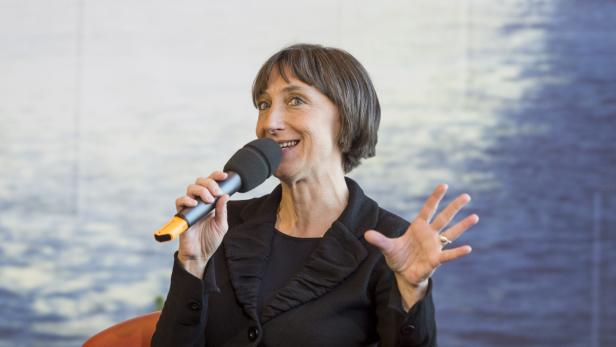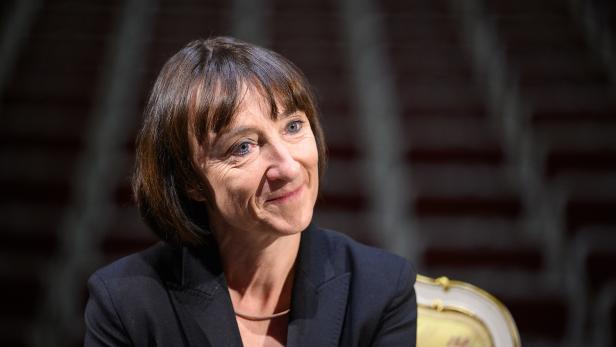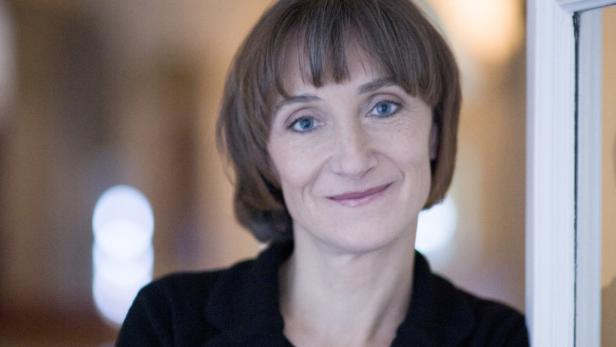By the end of this year Festival of Presence The director is also leaning Elizabeth Sobotka until its end. Contrary to what he declared during his performance, the outgoing director did not learn to travel during ten summers in Bregenz, otherwise he takes a lot with him from Vorarlberg to Berlin.
Either way, Sobotka is enjoying his last season to the fullest, he insisted in an APA interview.
“Lake Constance is the most impressive element that has stayed with me over the years,” said the director. The vastness and life of the lake always inspired her. Sobotka, who has been in charge of the festival since 2015, said, “I’m happy that the productions, in my opinion, are artistically convincing, work and found an audience both on and off the lake.”
His desire to celebrate diversity, create a colorful show and “take advantage of the opportunities this unique place offers” has come true.

From a “crazy idea” to create an opera after the war, a whole festival district with three different stages was created in close contact with other cultural institutions. The civic initiative of the day is still in force today.
“It doesn’t work if a whole city, a region doesn’t support it. It’s been crazy here for five and a half weeks – it’s supported by everyone, and still inspired!”
The director realized that she would have liked to have co-produced every house production, which was not possible. “But I’m happy that Tancredi (note: this year’s house opera) will live and go to Cologne,” said the director. She would have liked to try “whether Easter would work here.”
She doesn’t have a favorite product. Each production had something special because here “you’re a little closer to the creation,” said Sopotka, who oversaw many premieres very closely. Unlike the opera house, you can use the time of year to deepen your knowledge.
Even the festival’s “Weather Kitchen” evenings are associated with good memories for the director. The weather conditions were fine and it was “something very special” to spend an evening with the audience despite the rain. Sobotka said: “It’s a very sad thing when you leave. But at the festival you expose yourself to an element, “and that has a strength.”
“The shock of not being able to do theater or opera anymore is in my bones to this day,” the director said of the pandemic period. The festival had to be canceled in 2020, with very few “festival days”.
Social changes are still dramatic today. “You notice more and more what kind of trenches have been opened. I think it’s a shame we don’t have more of a celebration with this. It also shows how people can stand together despite mistakes,” Sobotka said. The world today is often seen as black or white, “but the world isn’t like that, it’s more complex.”

In times of crisis, the central task of art is “to demonstrate that diversity of opinion is not only possible but necessary.” Social media in particular is characterized by the creation of a quick opinion “And we have the opportunity and the task to show: no, it’s not that easy.” In the best case scenario, a theater or opera performance, which always opens up multiple avenues, can stimulate a thought process. “Because these colors and layers are so essential to humans, they define us,” he firmly believes.
After the pandemic, the festival’s former maritime opera “Rigoletto” was able to continue its success. For Sobotka, the fact that the festival does not suffer from a lack of visitors is due to the great attraction of the festival and the region, which is a combination of holiday and cultural attractions, which attracts visitors.
From Vorarlberg he took “many wonderful encounters” both artistically and personally. “What I’ve noticed is how far Vorarlberg is from Vienna,” he said of Viennese living and working in the area. It is very noticeable how much everything in Austria is concentrated in Vienna. Having good partners like ORF to show your presence is very important.
She was “really excited” about Vorlberg. There is a great desire to do, a lot of team spirit, and the company is “very unpretentious and content-oriented”. His successor, Lily Pasikivi, has also observed this excellent working environment. “I congratulate her from the bottom of my heart for leading this great festival,” Sobotka said.

APA8657274-2 – 17072012 – BREGENZ – Austria: TO APA 0139 KI – On Tuesday, July 17, 2012, the Bregenz Festival introduced Elisabeth Sobotka as the new artistic director at Lake Constance from 2015. The Presence Festival will be artistically directed by a woman for the first time since its founding in 1946. Pictured: Elizabeth Sobotka in an undated archive photo. +++ We expressly note that any use of the image may be exclusively related to the stated purpose for media and/or copyright reasons – Full Copyright Company +
The director is fully enjoying his last season. “I’m a person who lives in the moment,” he explained. She is still fully present. He then moved to the Berlin State Opera Unter den Linden, where he served as Opera Director from 2002 to 2009. There is unimaginable competition in cultural offerings.
Even in the basement – which includes three opera houses – there is competition “in the best sense”. “Our job will be to sharpen profiles and emphasize differences,” Sobotka said of the new mission.
An important point here is that the State Opera houses the leading opera orchestra in Berlin. A long time public music organiser Daniel Barenboim I not only maintained its size, but increased it. “It has an awareness of quality and an awareness of its own sound culture,” emphasized Sobotka. Barenboim, who resigned for health reasons, is now with me Christian Thielemann found a “compatible successor”.
She is looking forward to the inspiring exchange as she operates throughout the year, missing out on presence at times during the year. Sobotka still wants to visit Vorarlberg more often. On the one hand, it takes a while to break camp here, but on the other hand, “I learned to love the country and the people.”
(Interview by Angelica Graber-Hollenstein/ABA)